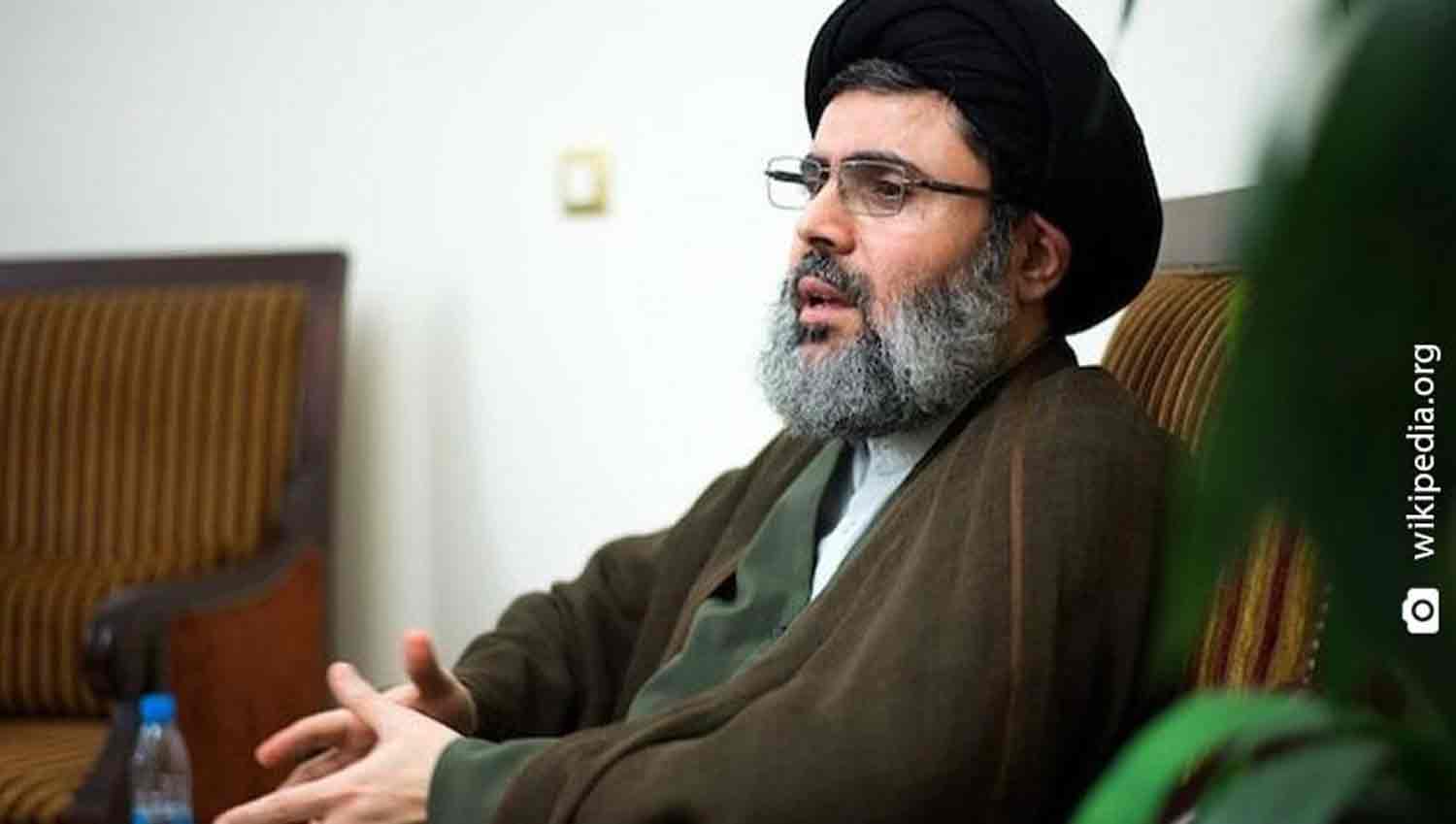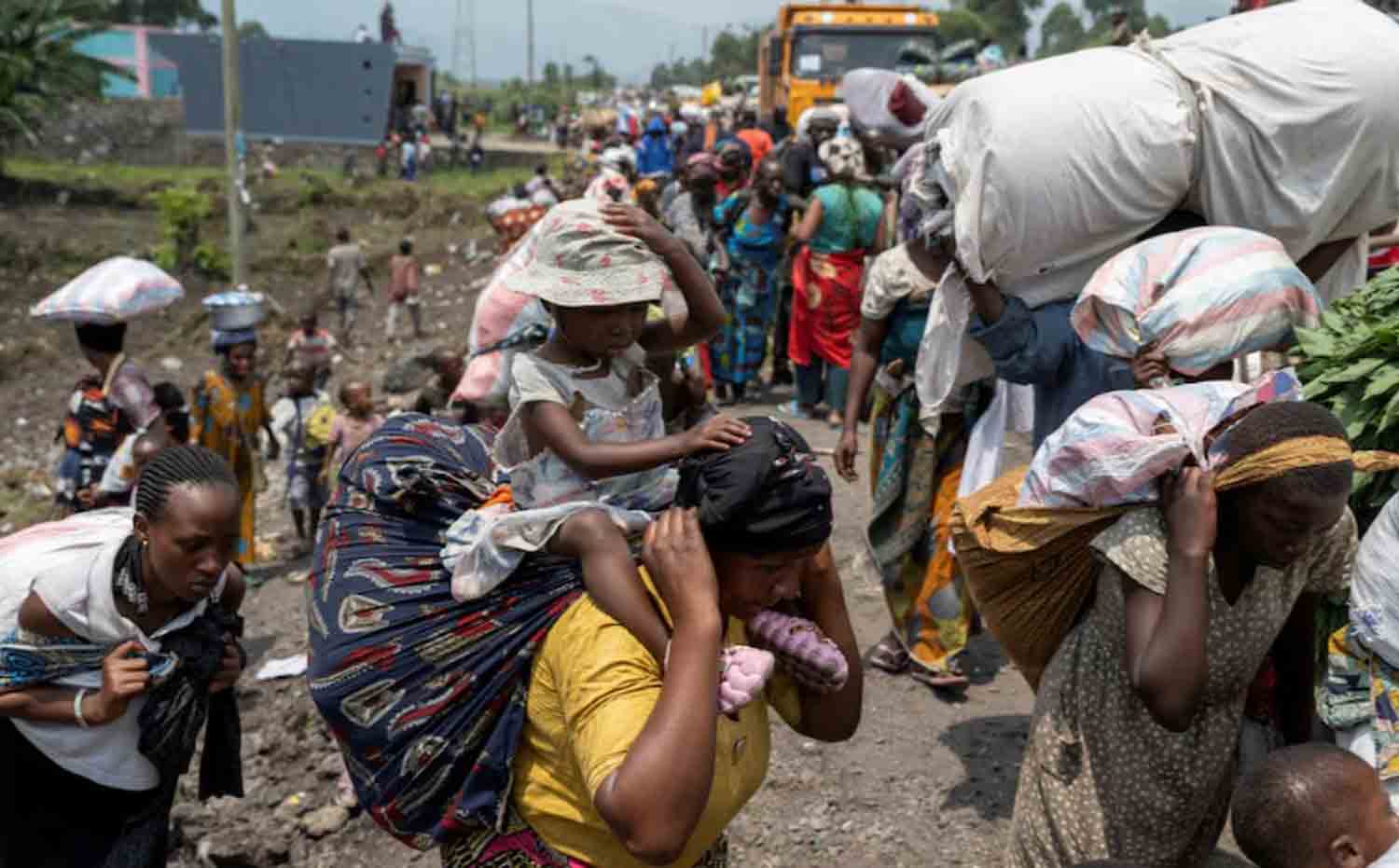The potential successor to the late Hezbollah leader Sayyed Hassan Nasrallah has reportedly been unreachable since Friday, according to a Lebanese security source. This follows an Israeli airstrike that allegedly aimed at him.
In its efforts against the Iran-supported Lebanese organization, Israel executed a significant strike on the southern suburbs of Beirut late Thursday, with three Israeli officials indicating that Hashem Safieddine was the target, located in an underground bunker.
The Lebanese security source, along with two others, noted that the ongoing Israeli bombardments in the Dahiyeh area of Beirut since Friday have hindered rescue teams from accessing the site of the attack. Hezbollah has yet to issue any statements regarding Safieddine following the incident.
Israeli Lieutenant Colonel Nadav Shoshani mentioned on Friday that the military was still evaluating the airstrikes conducted on Thursday night, which he stated were aimed at Hezbollah’s intelligence headquarters.
POTENTIAL LOSS OF SUCCESSOR SIGNIFICANT SETBACK FOR HEZBOLLAH
The potential loss of Nasrallah’s rumored successor would represent another significant setback for Hezbollah and its ally Iran. Over the past year, Israeli airstrikes throughout the region, which have intensified in recent weeks, have severely impacted Hezbollah’s leadership structure.
On Saturday, Israel escalated its military operations in Lebanon with its first airstrike in the northern city of Tripoli, according to a Lebanese security official. This followed additional bombings in the suburbs of Beirut and ground raids by Israeli forces in the southern region.
In recent weeks, Israel has launched a vigorous bombing campaign in Lebanon and deployed troops across the border, following nearly a year of intermittent clashes with Hezbollah. Previously, the fighting had been largely confined to the Israel-Lebanon border, occurring alongside Israel’s ongoing conflict in Gaza against the Palestinian group Hamas. Israel asserts that its objective is to facilitate the safe return of tens of thousands of residents to their homes in northern Israel, which have been under bombardment from Hezbollah since October 8 of last year.\
The Israeli military operations have significantly diminished Hezbollah’s upper command, including the elimination of Secretary General Nasrallah in an airstrike on September 27. According to Lebanese officials, these attacks have also resulted in the deaths of hundreds of civilians, including rescue personnel, and have displaced approximately 1.2 million individuals, nearly a quarter of the Lebanese population.
A Lebanese security official reported that a recent strike on a Palestinian refugee camp in Tripoli resulted in the deaths of a Hamas member, his wife, and their two children. Media sources linked to Hamas also confirmed the death of a leader from its military faction in the same attack.
The Israeli military has not yet provided a response regarding the incident in Tripoli, a port city with a Sunni Muslim majority that was previously targeted during the 2006 conflict with Hezbollah. Concurrently, Israel has been conducting nightly airstrikes in Dahiyeh, an area of Beirut that was once vibrant and densely populated, serving as a Hezbollah stronghold.
On Saturday, smoke rose from Dahiyeh, where extensive destruction has forced residents to seek refuge in other areas of Beirut or elsewhere in Lebanon. In northern Israel, air raid sirens prompted residents to rush to their shelters due to incoming rocket fire from Lebanon.
ISRAEL CONSIDERS RESPONSES TO IRAN
As the anniversary of Hamas’ assault on southern Israel approaches, which resulted in the deaths of 1,200 individuals and the abduction of approximately 250 hostages, tensions remain high. In retaliation, Israel’s military operations in Gaza have reportedly led to the deaths of nearly 42,000 Palestinians, according to the health ministry in Gaza, and have displaced almost the entire population of 2.3 million.
Iran, a supporter of both Hezbollah and Hamas, has faced significant losses, including key commanders from its Revolutionary Guards Corps due to Israeli air strikes in Syria earlier this year. On Tuesday, Iran launched a series of ballistic missile attacks against Israel, which resulted in minimal damage.
In light of these developments, Israel is evaluating its options in response to Iran’s aggression. The prospect of an attack on Iran’s oil infrastructure has contributed to rising oil prices, as Israel aims to counter Hezbollah forces in Lebanon and dismantle their Hamas counterparts in Gaza.
U.S. President Joe Biden recently advised Israel to explore alternatives to targeting Iranian oil fields, suggesting that Israel has not yet finalized its strategy regarding Iran. Reports indicate that Army General Michael Kurilla, the top U.S. general for the Middle East, is scheduled to visit Israel in the coming days. Israeli and U.S. officials have not yet provided comments on these matters.
Discover more from Defence Talks | Defense News Hub, Military Updates, Security Insights
Subscribe to get the latest posts sent to your email.





